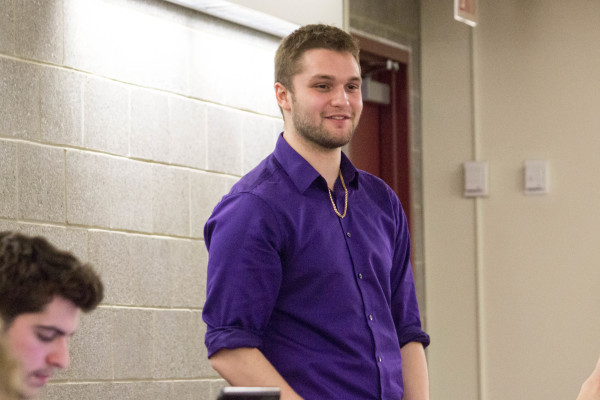
Editor's Note: This post was written by Jake Littman, a 2015 graduate of SUNY Stony Brook.
It all started then my friend had showed me a video – this video to be exact. The prospect that the technology we use every day – the cell phone I used to text and play candy crush on, the printer I had used to print an essay that morning, the laptop that we were watching the video on at that very moment – were potentially funding war halfway around the world was new and definitely disturbing. I was affected, but not so much as to totally inspire me to fight for change just yet. That came later.
It seems most college students are fighting for a cause. Constant bombardment with flyers, events, and baked goods being sold for some charity or another is a common aspect of any campus environment. It can be overwhelming. Fighting for various issues, I came to understand feelings of inadequacy very quickly. Oftentimes the fruits of our labors are unseen, and it gets tiring working towards a goal when real change is not always readily apparent. On the flip side however, the apparent lack of progress makes it all the more worthwhile when positive developments are revealed. That was what I found gave me the strength to throw myself into the movement for peace in the Democratic Republic of Congo, and fight for the active policy reformation that is contributing to a conflict-free mineral trade in the DRC.
This report was the tipping point. Just a few years after regulations were enacted here in the United States, real and quantifiable changes were happening in the DRC. I felt invigorated, like I had figured out a secret to changing the world. Policy reformation had been proven, in my eyes, to have the ability to create a real, positive effect on the lives of people literally halfway around the world. I was inspired to do what I could, to play my own part however small that might be, in passing this message along and spurring further reformation in hopes that these efforts could push along positive change.
Through my determination to garner as much support as possible from the people who have the power to enact policy change, I immediately contacted as many administrators at my university as I could. I was lucky to be met with much positivity and support, but a new challenge presented itself: being part of the State University of New York (SUNY) system means that our purchasing policies at Stony Brook University are controlled by the state of New York itself. So, in order for us to enact a policy that favors companies working to become conflict-free, the SUNY system would first have to endorse it, and the state would have to allow it to happen. This was terrifying as well as exciting. Everything had taken one giant step up in scale. It was like this goal we were chasing and so close to catching had just sprouted wings and flew off. But! This was exciting news as well – the task of attaining policy reformation at my own school had become attaining policy reformation at the entire SUNY system – all 64 schools! And beyond that, if the New York State school system was to change, why not the state itself? My feelings of being overwhelmed turned into passion at the prospect of enacting change in such a large scale. I had grown my own wings and was ready to start the chase once again.
Things began moving rather quickly. I won't bore you with all the details, but I was once told (and firmly believe, as corny as it may sound) to not ignore the stars aligning. That is what it felt like. Before I knew it, I was presenting a proposal for support of state-level procurement reformation at the SUNY Student Assembly, a meeting of student leaders representing all SUNY schools. The movement passed, but it is not the time for pats on the back or "good jobs" just yet. While official student support is a huge step, the real journey begins now. It is up to state legislators to enact real change, and it is our duty as students, citizens, and most importantly, human beings, to let those with the power to make change know that the time is now through petitions and letters of support.
For those of you on campuses – it has always been a quintessentially "college" thing to do to fight for a cause, and this is one of the biggest causes we could fight for in the present day. I didn't want to believe that the laptop I'm writing this on could be fueling a war, but the evidence is there and I am ready to do whatever I can to fight it. Policy change is a big step, but first and foremost is education. Knowledge is power. Numbers are power as well. We can all do our part by educating ourselves, and passing that education on. It has been proven that our efforts across the world can have real positive change on a war-torn nation, and that is something worth fighting for. This is an issue that is as far away as another continent, yet as close as our cell phones in our pockets. That is why I decided to take action.
Photo: Jake Littman, courtesy of Manju Shivacharan/The Statesman/SUNY Stony Brook

